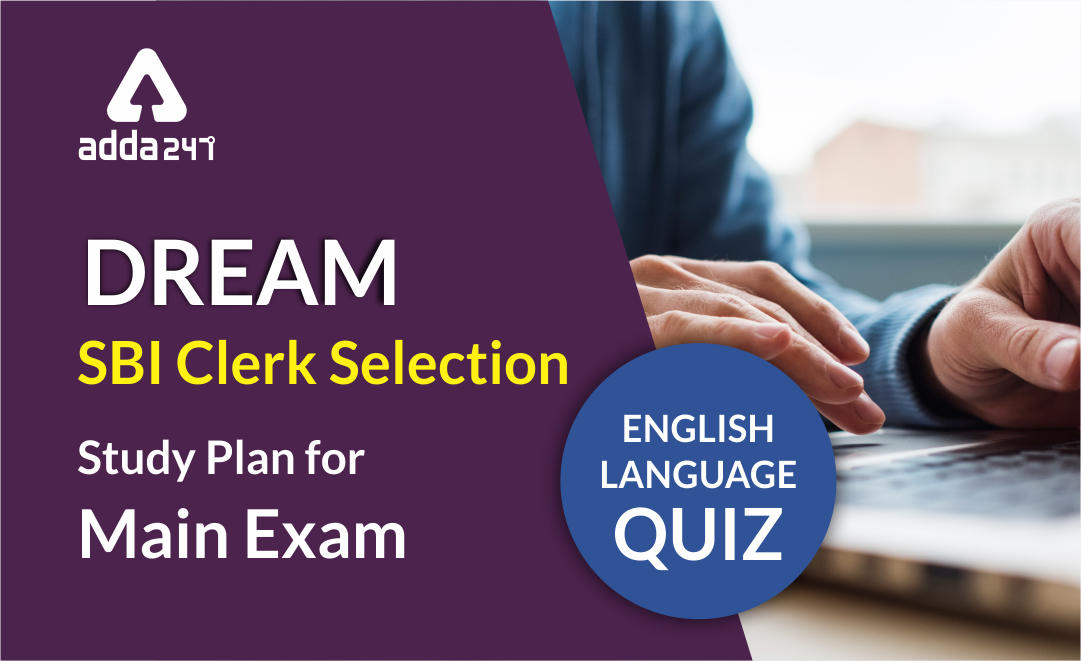SBI Clerk Main English Language Quiz
Directions (1-10): Read the following passage carefully and answer the questions given below it. Certain words are given in bold to help you locate them while answering some of the questions.
The discontent of the southern states shows no signs of abating. On Friday, Kerala finance minister Thomas Isaac added his voice to the chorus of southern dissent about the terms of reference (ToR) of the 15th Finance Commission. Using 2011 census data instead of 1971 census data to decide the allocation of tax revenue to states could lead to a major disruption of southern finances, according to him, since southern states have been more successful in bringing down population growth rates after 1971. It is understated criticism compared to his peers, Dravida Munnetra Kazhagam working president Stalin and Karnataka chief minister Siddaramaiah. Andhra Pradesh chief minister Chandrababu Naidu has summed up the southern perspective best. The change in census data, he has argued, is a betrayal: “Southern states contribute maximum tax revenues to the centre, but the latter is diverting the money to the development of northern states.”
The debate is not just about the distribution of tax revenues but goes to the heart of how one looks at joint responsibilities in any political project such as the Indian nation state. It is a given in any complicated political system that one area will support another. For example, what if the same logic is used by the richer districts or metropolitan areas to argue against transfer of resources to the poorer parts of states? Or from the cities to the villages? And what if a mineral-rich state such as Bihar were to argue that the more developed states of today grew at its cost during the planning era because of the freight equalization scheme that demolished its comparative advantage in metals production?
The members of the constituent assembly agreed to compromise on the fiscal autonomy of the states because the individual citizen rather than the state is the locus of development. This would be possible only if the centre has the authority to pool revenue, and redistribute it as needed. Krishna Sinha, then prime minister of Bihar, the fourth richest province when India became independent, noted that it was the “duty of the centre to give greater assistance to the poorer provinces” in order to bring them on par with the richer provinces. Fiscal transfers are hardwired into every complex federal political system. This has been a guiding principle of every Finance Commission since. There are good reasons for it. The Finance Commission is often portrayed as having to choose between equity and efficiency, but this is a misrepresentation. The two are complementary. A state that is starved of fiscal resources will be unable to invest in public goods required to close the income gap with other states, thus further increasing the divergence between states. This undercuts the political logic of the Indian Union; having the most populous areas of the country fall further behind is simply not politically sustainable.
This is not to argue for stasis on the part of the Finance Commission. In this particular instance, the southern states are correct that using 2011 data is a bad idea — but not for the reasons they have given. It is, in fact, a poor idea to give any weightage to population at all, as critics have pointed out over the years. It is a clumsy proxy by which to gauge a state’s fiscal needs. A balance between more granular criteria — development indicators, fiscal discipline, fiscal disabilities such as per capita income distance — is essential. It seemed till recently that successive Finance Commissions were moving in this direction. Till the 7th Finance Commission, population was given 80-90% weightage in deciding allocation of income tax. This fell sharply to 22.5% in the 8th Finance Commission and as low as 10% by the 11th Finance Commission. The slow creep to 25% and higher from the 12th Finance Commission has been retrograde. The population criterion must be done away with entirely. The development needs of an area are not necessarily captured in its population statistics.
The northern states are currently deeply dependent on central transfers because of their weak tax bases. The goods and services tax (GST) could help them since it is levied on consumption rather than production. There are always good reasons to ask whether liberal central transfers reduce the incentive of their state governments to invest in economic growth. It is a very complicated political economy question, but the answer is not cutting their federal support but pushing them to adopt policies for more rapid economic growth as well as population control. This is not something that can happen overnight, but the example of how a state such as Rajasthan has broken out of the old Bimaru trap shows that it is not impossible. Southern states will continue to assist the North in the foreseeable future. This is as it must be. The political idea of a country with as many centrifugal forces as India should not be held hostage to regional grandstanding.
Q1. “The change in census data is a betrayal”, What does this statement mean in the context of the passage?
(I) The states are fighting against themselves for the maximum allocation of funds by the centre.
(II) Southern states have less population as compared to northern states leading to more funds allocation to northern states through 2011 census data, which is being objected by southern states.
(III) The central government is ameliorating the basis of allocation of funds to the states.
Q2. What conclusion can be drawn regarding the conduct of the states towards other states of India?
Q3. How the government could focus on the development of individual citizen of the state?
Q4. Which of the following sentences can be inferred from the passage?
Q5. How is it correct to say that the condition of Northern states is not so good as compared to southern states?
(I) Southern states have rich source of resources as compared to northern states.
(II) Southern states are more successful in regulating population.
(III) Northern states are dependent on the funds from central government due to weak tax bases.
Q6. The appropriate “title” of the passage is
Q7. Choose the word which is most similar in meaning of the word printed in bold in the context of the passage.
Abating
Q8. Choose the word which is most similar in meaning of the word printed in bold in the context of the passage.
Hostage
Q9. Choose the word which is most opposite in meaning of the word printed in bold in the context of the passage.
Dissent
Q10. Choose the word which is most opposite in meaning of the word printed in bold in the context of the passage.
Demolish
Directions (11-15): In each of the following question, a sentence is divided into number of parts but not necessarily in the arranged order. A part of the sentence may or may not belong to the sentence structure coherently. Choose the correct sequence of the rearranged parts to form a meaningful sentence among the five alternatives given below each question after eliminating the incoherent part. If the sequence is the one which is not given, choose option (d) as your choice. If the given sentence is already arranged in proper order, choose option (e) i.e., “No rearrangement required” as your answer.
Q11. they need to have the freedom to translate curricula into (A)/ moving away from a restrictive textbook-based teaching, (B)/ practice in a manner that addresses(C)/ teachers must be able to help (D)/ the requirements of their students. (E)
“Moving away from a restrictive textbook-based teaching, they need to have the freedom to translate curricula into practice in a manner that addresses the requirements of their students.”
Q12. electricity-charged batteries (A)/ commonly known as e-rickshaws, (B)/ largest manufacturer of electric rickshaws (C)/ battery operated electric rickshaws, (D)/ are passenger vehicles powered by (E)
“Battery operated electric rickshaws, commonly known as e-rickshaws, are passenger vehicles powered by electricity-charged batteries.”
Q13. problems of overcrowding, (A)/ insanitation and shortage (B)/ of staff and equipment (C)/ government hospitals suffer from (D)/ to private hospitals for better healthcare (E)
“Government hospitals suffer from problems of overcrowding, insanitation and shortage of staff and equipment.”
Q14. working in closed AC buildings (A)/ physical exertion to boost its healing power (B)/ continuous circulation of exhaled air(C)/ is also a health hazard due to reduction (D)/ in oxygen levels as a result of (E)
“Working in closed AC buildings is also a health hazard due to reduction in oxygen levels as a result of continuous circulation of exhaled air.”
Q15. The quality of higher education is (A)/ the engine of economic growth, (B)/ powering the supply of high-level skills, (C)/ conceptual knowledge and scientific innovations that (D)/ can eventually position India as a strategic global leader (E)




 English Language Quiz For Bank Foundatio...
English Language Quiz For Bank Foundatio...
 English Language Quiz For SBI Clerk Prel...
English Language Quiz For SBI Clerk Prel...
 English Language Quiz For SBI Clerk Prel...
English Language Quiz For SBI Clerk Prel...



